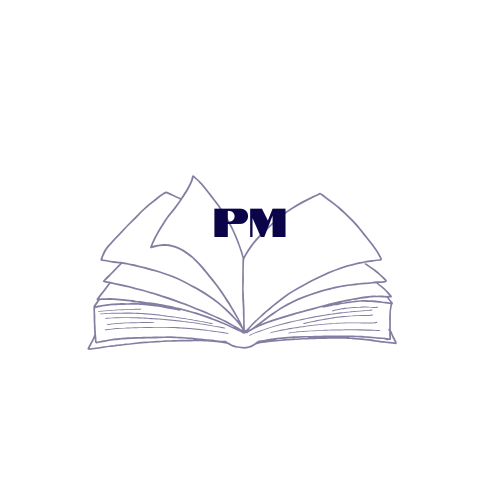In the fast-evolving world of project management, keeping up with emerging trends is crucial for success. As we move into 2025, advancements in technology, shifting workforce dynamics, and evolving business demands are redefining the landscape. This article explores the key project management trends for 2025 and how they will impact your projects, teams, and career.
1. AI and Automation: Transforming Project Management
Artificial intelligence (AI) and automation are revolutionizing project management by boosting efficiency and enhancing decision-making.
Key Trends:
- AI-Powered Project Planning: Advanced AI algorithms analyze historical data to improve timelines, resource allocation, and risk management.
- Automation Tools: Automated workflows simplify tasks like reporting, scheduling, and communication, reducing manual effort.
- Predictive Analytics: AI-driven insights help teams proactively address risks and optimize project outcomes.
Popular AI-Powered PM Tools: Asana, Trello, and Monday.com with AI features.
According to PMI, over 80% of project managers believe AI will be a critical skill by 2025.
2. Hybrid Work Models: Adapting to New Norms
Hybrid work is here to stay, requiring project managers to seamlessly integrate remote and in-office collaboration.
Key Trends:
- Balancing Remote and On-Site Collaboration: Digital tools enable smooth communication and collaboration.
- Essential Tools: Zoom, Microsoft Teams, and Slack enhance team alignment and visibility.
- Employee Engagement Strategies: Virtual team-building and regular check-ins sustain motivation and productivity.
PMI’s 2024 Pulse of the Profession Report: 74% of organizations have adopted hybrid work models, cementing their long-term viability.
3. Agile Methodologies: Expanding Beyond IT
Agile project management is extending beyond IT, helping various industries enhance flexibility and responsiveness.
Key Trends:
- Agile Beyond IT: Finance, healthcare, and construction sectors are implementing Agile frameworks.
- Scaled Agile Frameworks (SAFe): Organizations are scaling Agile across multiple departments for greater impact.
- Agile Culture: Fostering collaboration, adaptability, and a customer-first approach.
Case Study: A healthcare provider improved project turnaround times by 20% using Agile methodologies.
4. Sustainability: A Core Project Priority
Sustainability is now central to project management, driven by corporate responsibility and regulatory pressures.
Key Trends:
- Embedding ESG Goals: Environmental, social, and governance (ESG) principles are shaping project strategies.
- Sustainable Resource Allocation: Efficient energy use and waste reduction in project execution.
- Certifications and Frameworks: PRiSM and GPM Global certifications support sustainability-focused project management.
Businesses adopting sustainable practices report higher stakeholder trust and long-term profitability.
5. Emotional Intelligence (EQ): The Key to Effective Leadership
Project managers are increasingly relying on emotional intelligence to foster strong relationships and navigate challenges.
Key Trends:
- Soft Skills Take Center Stage: EQ is vital for stakeholder management and team collaboration.
- Leadership Development: Investing in EQ training enhances communication and empathy.
- Conflict Resolution: High-EQ leaders can effectively resolve disputes and foster a positive work environment.
6. Project Management Software: Evolving for Efficiency
Project management tools are advancing to cater to modern business needs and enhance efficiency.
Key Trends:
- Cloud-Based Solutions: Providing real-time access and collaboration capabilities.
- AI-Powered Features: Intelligent tracking and data analytics improve project efficiency.
- Seamless Integration: Connecting with CRM, ERP, and HR systems for better workflow management.
7. Data-Driven Decision Making: Leveraging Insights
Project managers are increasingly relying on data analytics to drive strategic decisions and optimize performance.
Key Trends:
- Big Data in Project Management: Using analytics to uncover trends and allocate resources efficiently.
- Real-Time Dashboards: Offering stakeholders comprehensive project insights.
- Predictive Analytics: Anticipating challenges and addressing them proactively.
67% of PMOs are investing in analytics to support data-driven decisions.
8. Citizen Project Managers: Empowering Non-Traditional Leaders
The rise of no-code and low-code tools enables individuals without formal PM training to lead projects effectively.
Key Trends:
- Empowering Non-Traditional PMs: Accessible tools for individuals without formal project management backgrounds.
- No-Code/Low-Code Platforms: Solutions like Airtable and Smartsheet simplify project oversight.
- Governance Challenges: Ensuring standardization and compliance in citizen-led projects.
Startups are increasingly using no-code platforms to manage operations efficiently.
9. Continuous Learning and Upskilling: Staying Relevant
Project managers must embrace lifelong learning to stay competitive in an evolving industry.
Key Trends:
- Trending Certifications: PMP, PMI-ACP, PRINCE2, and SAFe continue to hold value.
- E-Learning Platforms: Platforms like Coursera, Udemy, and LinkedIn Learning provide flexible upskilling options.
- Microlearning: Short, focused learning modules keep professionals updated with industry changes.
85% of project managers consider continuous learning essential for career growth.
The project management landscape in 2025 is evolving rapidly, and embracing trends like AI, hybrid work models, Agile methodologies, and sustainability is key to staying competitive. Leveraging modern tools, refining leadership skills, and prioritizing continuous learning will ensure long-term success.
Stay ahead of industry changes—enroll in a project management certification course and subscribe to our newsletter for the latest updates.

Leave a Reply